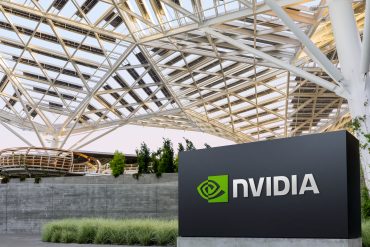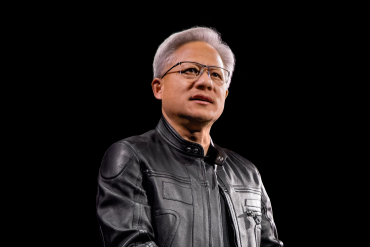
- AI Chips
- Semiconductors
- Trade Policy
China Finds Nvidia's Mellanox Acquisition Violated Antitrust Laws
5 minute read

Chinese antitrust regulators threaten Nvidia’s $150 billion chip market access following investigation of Mellanox merger deal
Key Takeaways
- China finds Nvidia violated antitrust laws in its 2020 acquisition of Mellanox Technologies, escalating regulatory scrutiny of US tech firms operating in the world’s largest semiconductor market.
- Nvidia shares drop 2% in pre-market trading following the announcement, highlighting investor concerns over potential fines and restricted access to China’s $150 billion chip market.
- Asia-Pacific represents 22% of Nvidia’s $60.9 billion revenue with China as a key driver, making regulatory action a significant threat to the chipmaker’s growth strategy.
Introduction
China’s market regulator has concluded that Nvidia Corp. violated anti-monopoly laws with its 2020 acquisition of Mellanox Technologies Ltd., marking a significant escalation in regulatory pressure on US tech companies. The State Administration for Market Regulation reached this determination after a preliminary investigation into the $7 billion deal that expanded Nvidia’s data center capabilities.
The finding represents a critical juncture for the world’s most valuable semiconductor company as it navigates increasingly complex US-China trade tensions. China’s decision to extend its probe creates immediate uncertainty for Nvidia’s operations in the world’s largest chip market, where regulatory actions carry substantial financial and strategic consequences.
Key Developments
According to Bloomberg, Chinese regulators completed their initial assessment of the Mellanox acquisition, determining that the transaction violated the country’s antitrust regulations. The investigation focuses on whether the deal created unfair competitive advantages in the data center and networking chip markets.
The timing proves particularly sensitive as Nvidia faces mounting restrictions on advanced chip sales to China. US export controls already limit the company’s ability to sell its most powerful AI processors to Chinese customers, forcing Nvidia to develop specialized versions for the Chinese market.
China’s regulatory action follows a broader pattern of increased scrutiny on foreign tech acquisitions. The country has strengthened its antitrust enforcement mechanisms, particularly targeting deals that could consolidate market power in critical technology sectors.

Market Impact
Nvidia’s stock price dropped approximately 2% in pre-market trading following the announcement, reflecting immediate investor concern over potential penalties. US stock index futures simultaneously reduced their gains as markets processed the implications for broader tech sector exposure to Chinese regulatory risk.
The market reaction underscores Nvidia’s significant revenue dependence on Asian markets. In fiscal 2024, the Asia-Pacific region generated approximately 22% of the company’s $60.9 billion in total revenue, with China serving as a crucial growth driver despite existing export restrictions.
Semiconductor stocks broadly showed increased volatility as investors reassessed regulatory risks facing US chip companies operating in China. The sector’s sensitivity to geopolitical developments continues to create sharp price movements on policy announcements.
Strategic Insights
The antitrust finding signals China’s intention to leverage regulatory tools in its broader technology competition with the United States. By targeting completed acquisitions, Chinese regulators demonstrate their willingness to retroactively challenge deals that strengthen US tech companies’ market positions.
For Nvidia, the investigation threatens access to a market that remains essential despite existing trade restrictions. The company has invested heavily in developing China-compliant chip variants and maintaining relationships with Chinese customers, making regulatory barriers particularly costly.
The action also accelerates China’s push toward semiconductor self-sufficiency. By increasing compliance costs and operational uncertainty for foreign chip companies, Chinese regulators create competitive space for domestic alternatives to gain market share.

Expert Opinions and Data
Industry analysts view the antitrust finding as part of China’s broader strategy to reduce dependence on US technology suppliers. The country’s semiconductor market, valued at over $150 billion annually, represents too large an opportunity for global firms to ignore despite increasing regulatory challenges.
Market experts predict Nvidia will pursue diplomatic and legal channels to resolve the investigation while simultaneously developing risk mitigation strategies. The company faces the challenge of maintaining Chinese market access without compromising its global competitive position.
Technology sector observers note that other multinational firms may interpret this action as a warning to reassess their China operations. The precedent of challenging completed acquisitions creates new uncertainty for companies with significant Chinese business exposure.
Conclusion
China’s antitrust finding against Nvidia’s Mellanox acquisition represents a significant escalation in regulatory pressure on US technology companies operating in Chinese markets. The investigation creates immediate financial and strategic risks for Nvidia while highlighting the growing complexity of maintaining business relationships across increasingly divided technology ecosystems.
The market’s negative reaction demonstrates investor recognition that regulatory actions in China carry substantial consequences for companies dependent on Asian revenue streams. This development reinforces the challenging environment facing global technology firms as they navigate competing regulatory frameworks and geopolitical tensions.








